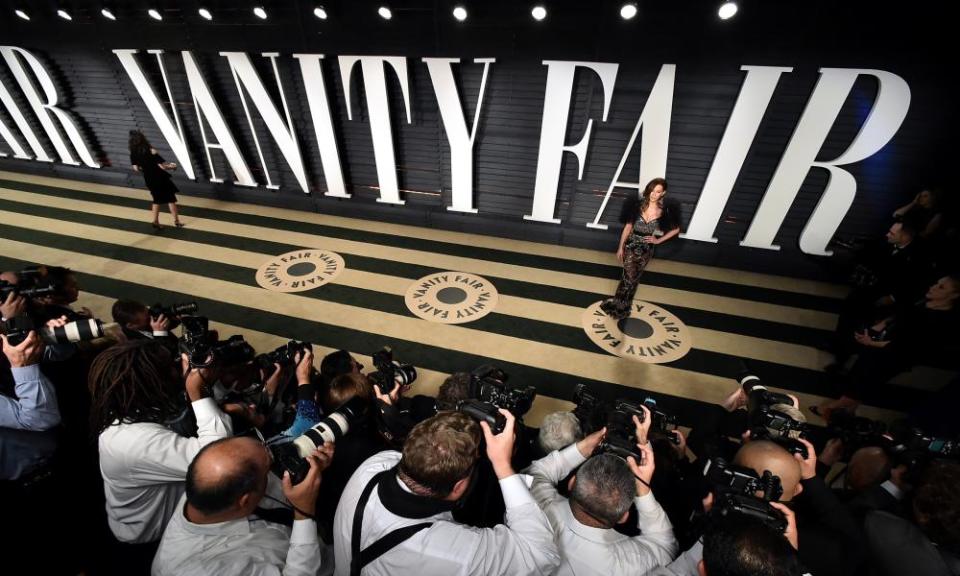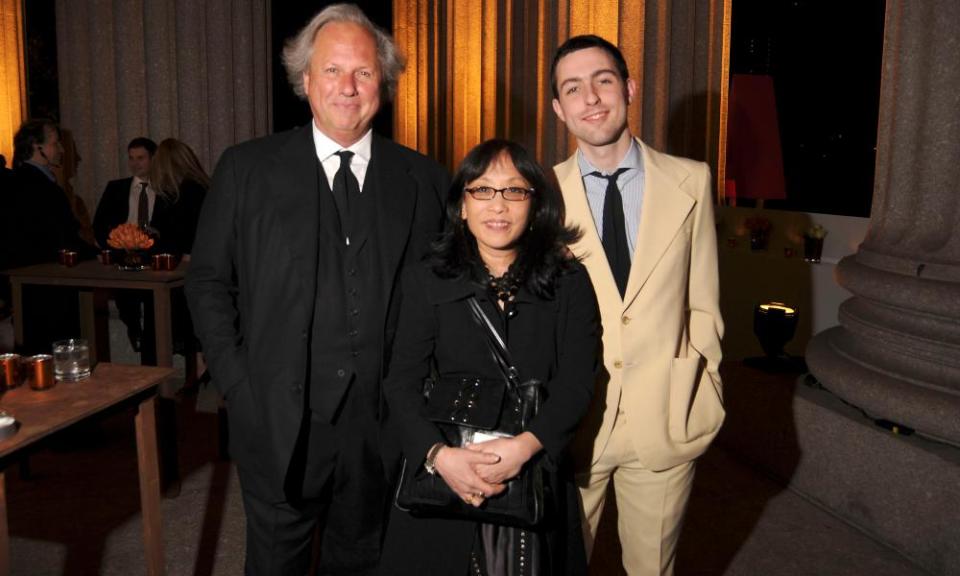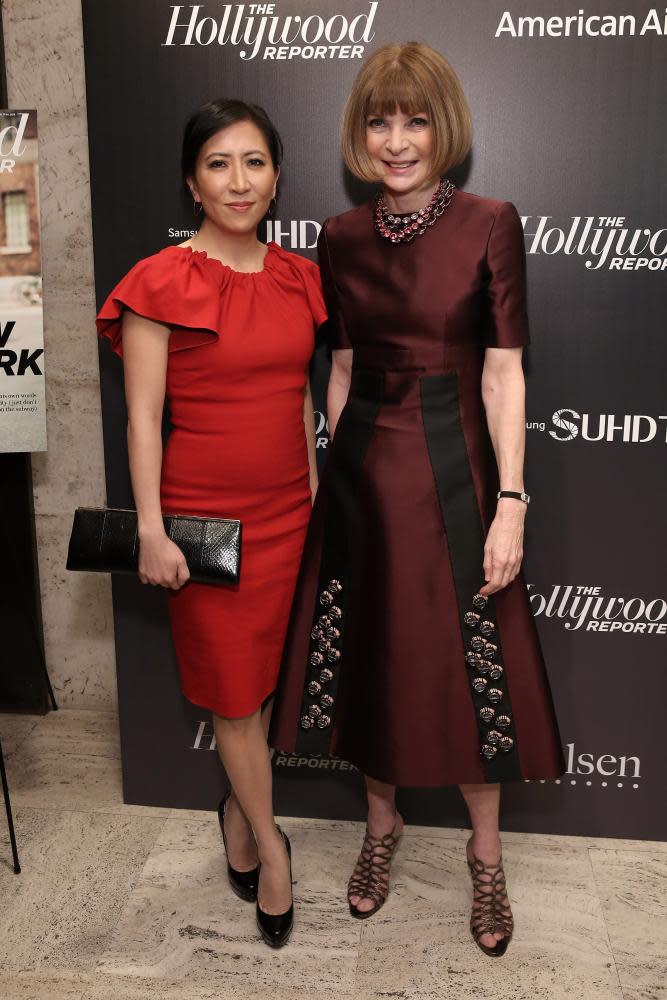Vanity Fair hunts for an editor in a post-Weinstein world
As sexual harassment accusations sweep through many industries, the selection of a new editor has become a prism through which to read a changing landscape

The publishing industry guessing game over who will assume Vanity Fair’s leadership role from long-serving superstar editor Graydon Carter may have been abruptly altered by sexual harassment accusations sweeping through the institutions of film, fashion and publishing.
The impact of the fall of Hollywood mogul Harvey Weinstein, mired in sexual harassment allegations, was made clear on Friday when Conde Nast, publishers of Vogue and Vanity Fair, issued a statement calling for new systems to protect vulnerable workers from sexual predators.
“The company expects all employees, freelance contributors and others that Conde Nast retains to act appropriately and with the utmost personal and professional respect for each other,” Conde Nast International chairman and CEO Jonathan Newhouse and Bob Sauerberg, CEO of Conde Nast, said in a statement.
The company said it would call on “other like-minded publishers, relevant trade organisations and talent representatives to join us in this effort” to stamp out sexual harrasment in fashion, publishing and related image-production industries.
Weinstein has denied wrongdoing but the publisher’s statement underscores how fashion and publishing are rapidly being reshaped as people challenge the culture that has enabled alleged abuse and call for reform.
The selection of a new Vanity Fair editor has become a prism through which to read a changing landscape. It is close on two months since Carter resigned from a 25-year tenure at Vanity Fair and still Conde Nast, a company known for shuffling one editor out and slotting another in with brutal efficiency, does not appear to be close to making a decision on his replacement.
“If publishing companies and media organizations are not thinking about these issues as they pick new top leaders then they’re making a significant mistake,” said David Folkenflik, media correspondent with National Public Radio in New York. “They need to think about how their cultures operate and to not be on autopilot looking for a fix for the razor-thin profit margins.”

Over the past weeks, a number of high profile media figures have lost their jobs in the wake of sexual harassment allegations. Knight Landesman, co-publisher of leading arts journal Artforum, resigned after he was named in a sexual harassment complaint filed with the supreme court of the state of New York, accusing him of years of sexual harassment in the form of “unwelcome physical contact and repulsive written and oral demands for intimacy”.
British GQ, a publication under the the umbrella of Conde Nast International, announced it had terminated its contract with political writer Rupert Myers after a number of allegations surfaced online. Veteran news journalist and author Mark Halperin was suspended from NBC News after several women shared previously undisclosed accounts of alleged sexual harassment with CNN.
Have they been too cosy with the world of celebrity? Have they been turning a blind eye in order in ensure access?
David Folkenflick, NPR
Against this background, the selection of one of the most high-profile editors in publishing is more than a matter of expanded due diligence. “Anybody naming a new executive who do not have women finalists, should probably reopen their process,” said Folkenflik.
“All organisations need to think hard about this issue and they need to think hard about how they cover it. Have they been too cosy with the world of celebrity? Have they been turning a blind eye in order in ensure access? The proximity to glitz should not blind anyone, particularly journalists, to their role as honest arbiters.”
‘It’s not about editorial stars anymore’
The issue threatens to compound the challenges Conde Nast faces in picking a new editor amid hard economic times in the once-bouyant luxury magazine business.
Luxury advertisers like Louis Vuitton and Gucci are increasingly moving ad spending away from print publications and toward social media and online. According to the ad-buying firm Zenith Media, the luxury industry’s global spending on digital advertising was $1.01bn in 2016, up 63% since 2013. Spending on magazine ads fell 8% over the same period to $2.6bn.
Earlier this year, François-Henri Pinault, CEO of Kering, the luxury behemoth whose brands include Gucci and Saint Laurent, described a rapidly shifting priorities. “If we were to launch a brand today, all the communication to start would be online,” he told the Wall Street Journal.
While US Conde Nast titles claim 100 million online readers each month and 174 million social-media followers, the shift threatens to diminish the traditional cultural gatekeeping of luxe mag editors, now increasingly tasked with cost-cutting.
In recent years, Conde Nast has closed several print titles and cut back the frequency of others, while executives charged re-organizing the business and editorial divisions have entered and soon departed.
Pamela Drucker Mann, who was recently promoted to become the company’s first female chief revenue and marketing officer, has said part of the turnaround effort would be to turn magazines like Vogue into “a creative agency”, helping brands “create their advertising campaigns and their custom content”.
While Carter was a star editor – famous for his glitzy Oscars party and A-list friends, the new editor may need new skills.
The publishing successes of the past decade, Huffington Post and Buzzfeed, relied on technological innovation, aggregation and social media, not editorial innovation, said Jamie Pallot, former editorial director of Conde Nast Digital, now co-founder of virtual reality studio Emblematic Group.
“It’s not about editorial stars anymore, it’s about systems,” he said.
‘Cattle call’
It’s against this economic, technological and gender-equality upheavals, that Conde Nast executives must select Carter’s replacement.
Several sources say there is no agreed set of objectives among Conde’s editorial executives, senior management and the owning Newhouse family, with each offering starkly competing visions of leadership, including a celebrity editor, several in-house candidates and names from without the company.
[At] Conde Nast, everybody has their own candidates and their own point of view. There is no one person in command
“Whatever is going on Conde Nast, everybody has their own candidates and their own point of view. There is no one person who is clearly in command. It’s an unwieldy committee trying to come to some agreement,” said one knowledgeable source.
One media banker figure characterized the search as “a great disaster story” in which all of the best candidates have been spooked by the “cattle-call nature of the search”.
The central issue is whether the era of the superstar editor has been eclipsed, in favor of younger, cheaper and more digitally savvy editors. There is no clear answer, though sources say any appointment will be expected to do more with less. The new Vanity Fair editor can expect a pay package of around $600,000 – a steep drop-off from Carter’s $3m.

The company was widely expected to select Janice Min, the highly regarded former editor of Los Angeles-based Hollywood Reporter who now leads the editorial direction of that magazine’s parent, Guggenheim Media, which Conde Nast was at one time in discussions to purchase.
The list of leading candidates is largely speculative with loyalties dividing down gender lines. But Min, promoted by artistic director Anna Wintour, is still believed to head the list of likely successors – if she’s interested. Many believe she may chose a position close to home as the filmed entertainment business seeks more women in leadership positions in an attempt at reforming itself.
Others believed to be in the running include the Canadian journalist, entrepreneur, and magazine publisher Tyler Brule – a name put forward by members of the Newhouse family – and Ronan Farrow, who recently detailed the rape allegations against Harvey Weinstein in the New Yorker. Farrow’s promoter is that magazine’s editor David Remnick.
The fall of Weinstein, not to mention the rise of Donald Trump, have changed what readers expect from an institution like Vanity Fair. The new editor will need more than Hollywood contacts to win Carter’s seat. According to Nu Yang, editor of Editor & Publisher, luxury magazines are increasingly looking to include hard news in their digital offerings because news is where the energy in the culture now resides and where consumer demands lies.
“Magazines that used to be into society or fashion are trying to do more news and political issues because they want to tap into the audience for newspapers. Consumers are looking for facts and they’ll go where ever they can get that from,” said Yang.

